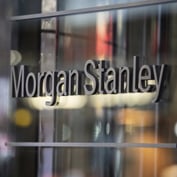What You Need to Know
- Respondents plan to increase their use of indexing, ETFs, ESG strategies and Chinese sovereign bonds.
- Currently, less than a third of respondents report using index strategies for their fixed income allocations.
- Respondents expect to use ETFs for their increased ESG allocations.
Four new trends are emerging among institutional investors in the fixed income market, according to a new report from State Street Global Advisors: more indexing; more ETFs; more environmental, social and governance (ESG) strategies; and the addition of Chinese sovereign bonds along with more emerging market bonds.
“In the search for yield, institutional investors are shifting their portfolios to incorporate fixed income at a lower cost, and accompanying that shift is a focus on yield, liquidity and transparency,” said Gaurav Mallik, chief portfolio strategist for SSGA, in a statement. Institutional investors are essentially doing what many retail investors have already done.
SSGA, a leading indexing and ETF asset manager, surveyed nearly 360 senior management and senior portfolio managers at a variety of global institutions including pension funds, sovereign wealth funds, wealth managers and asset management firms, asking about their planned allocations over the next three years.
More Fixed Income Indexing
Two-thirds said they are prioritizing the increased use of indexing for broad or liquid core fixed income exposures. In North America, the percentage was 71%. Less than one-third currently use fixed income index strategies.
Forty-four percent plan to increase index allocations to high yield, while 35% to 37% plan to increase index allocations to sovereign debt funds, emerging market debt, global aggregate/core and investment grade corporate debt.
In addition to lower costs, enhanced liquidity and reliability of benchmark returns, institutional investors cited a lack of “complete satisfaction with the current active fixed income strategies,” according to State Street.









 July 22, 2021 at 02:59 PM
July 22, 2021 at 02:59 PM










